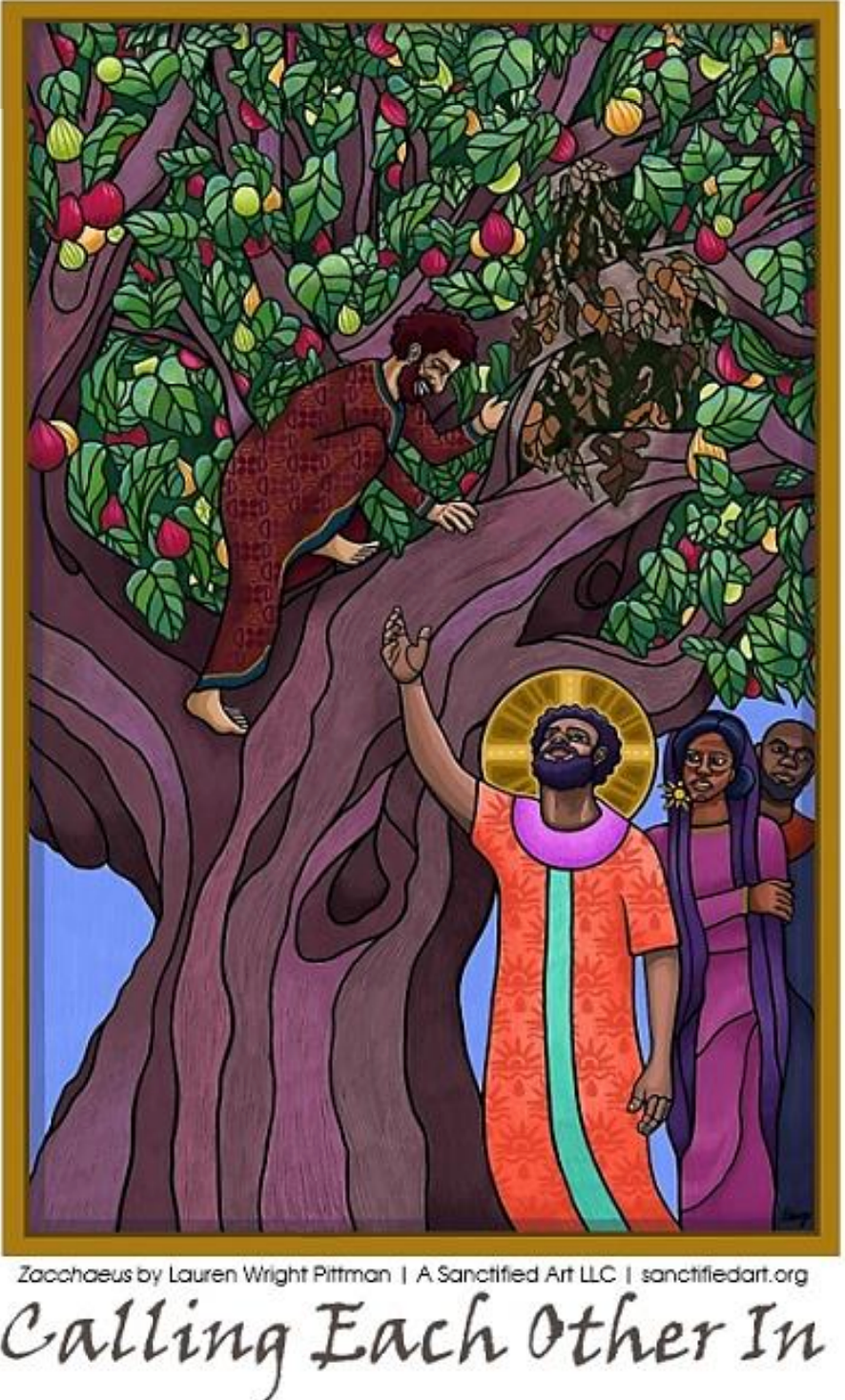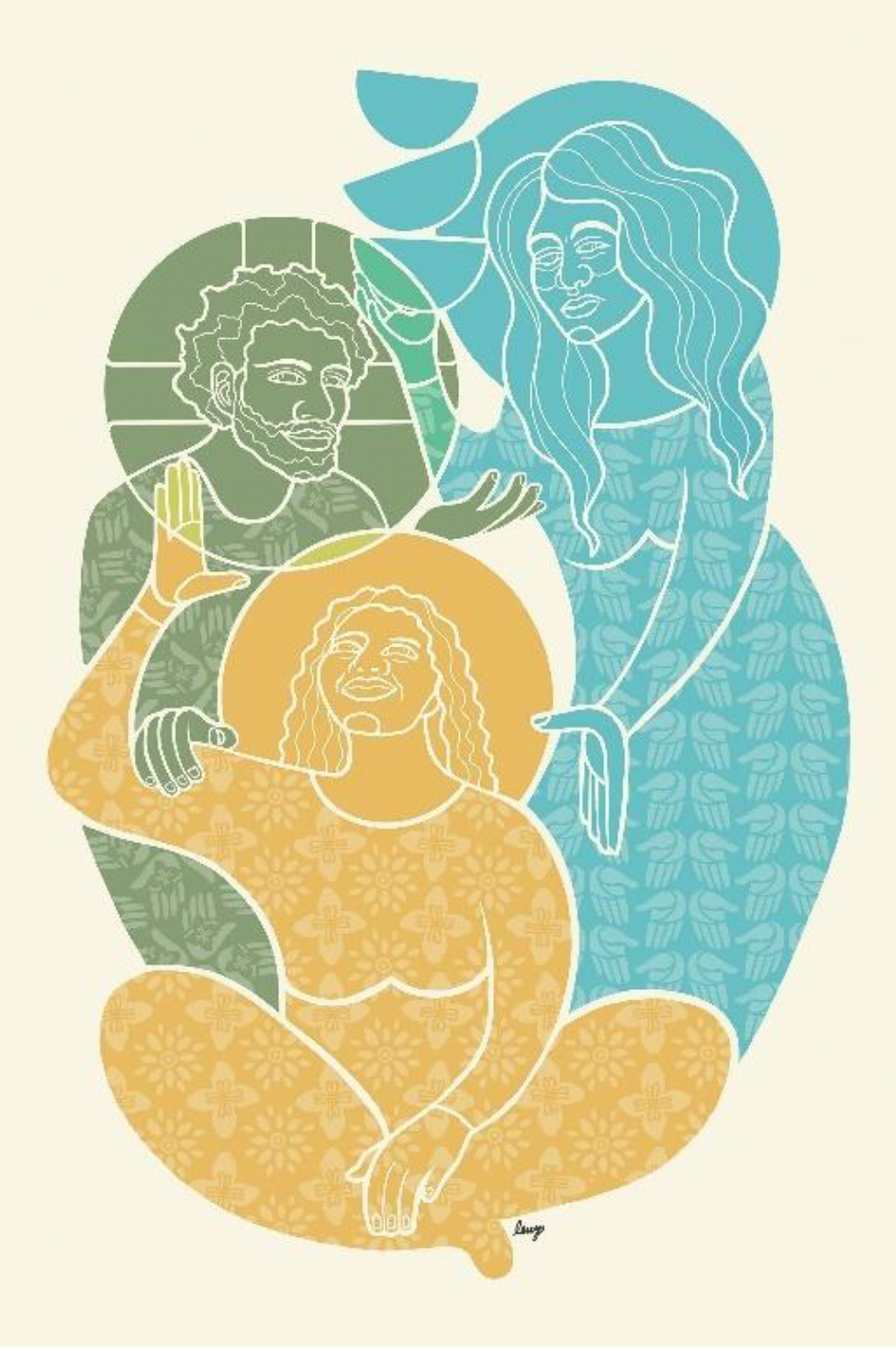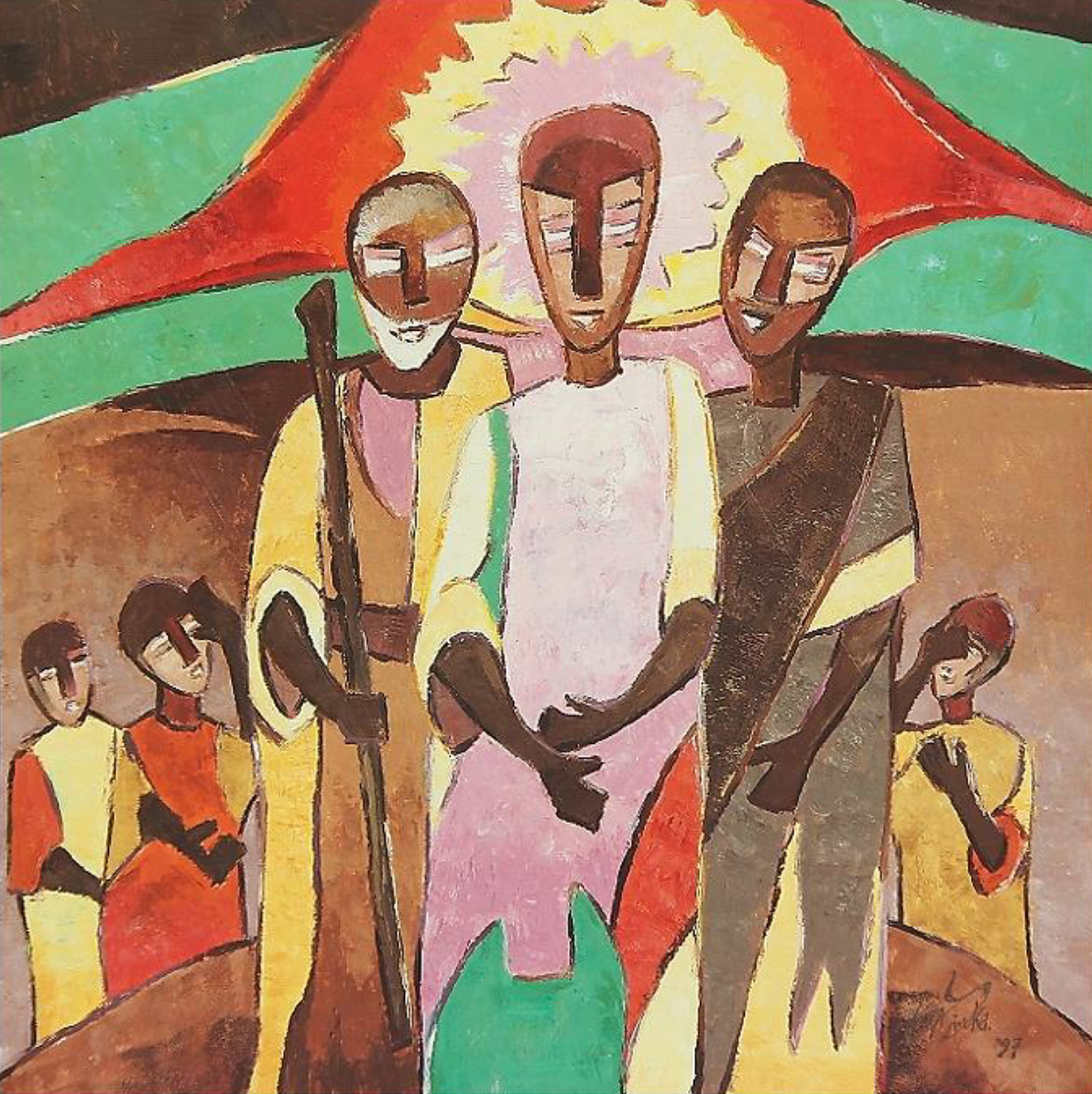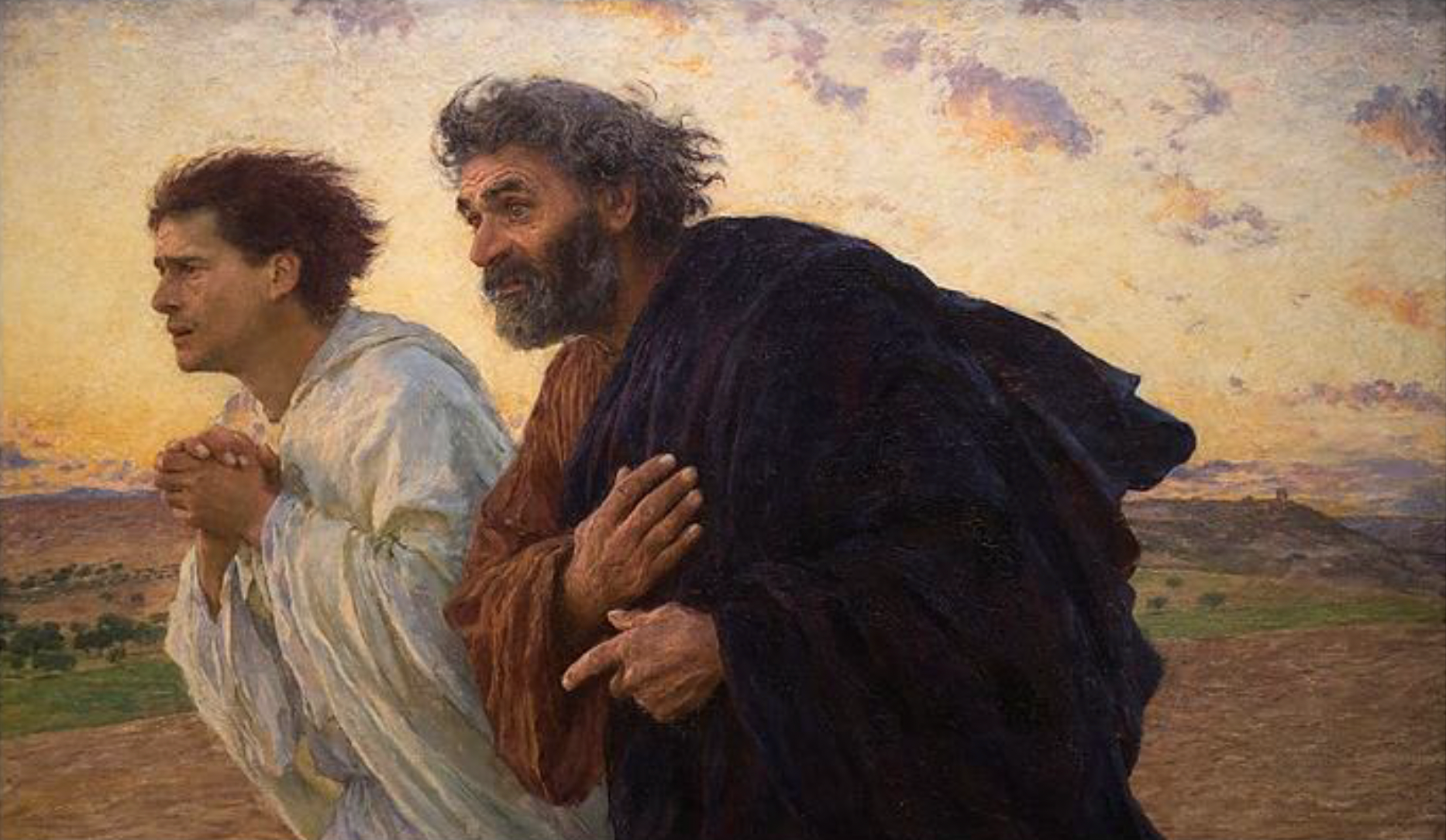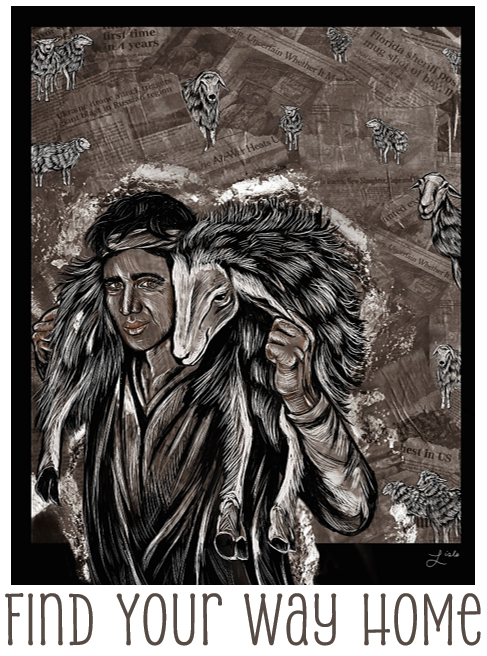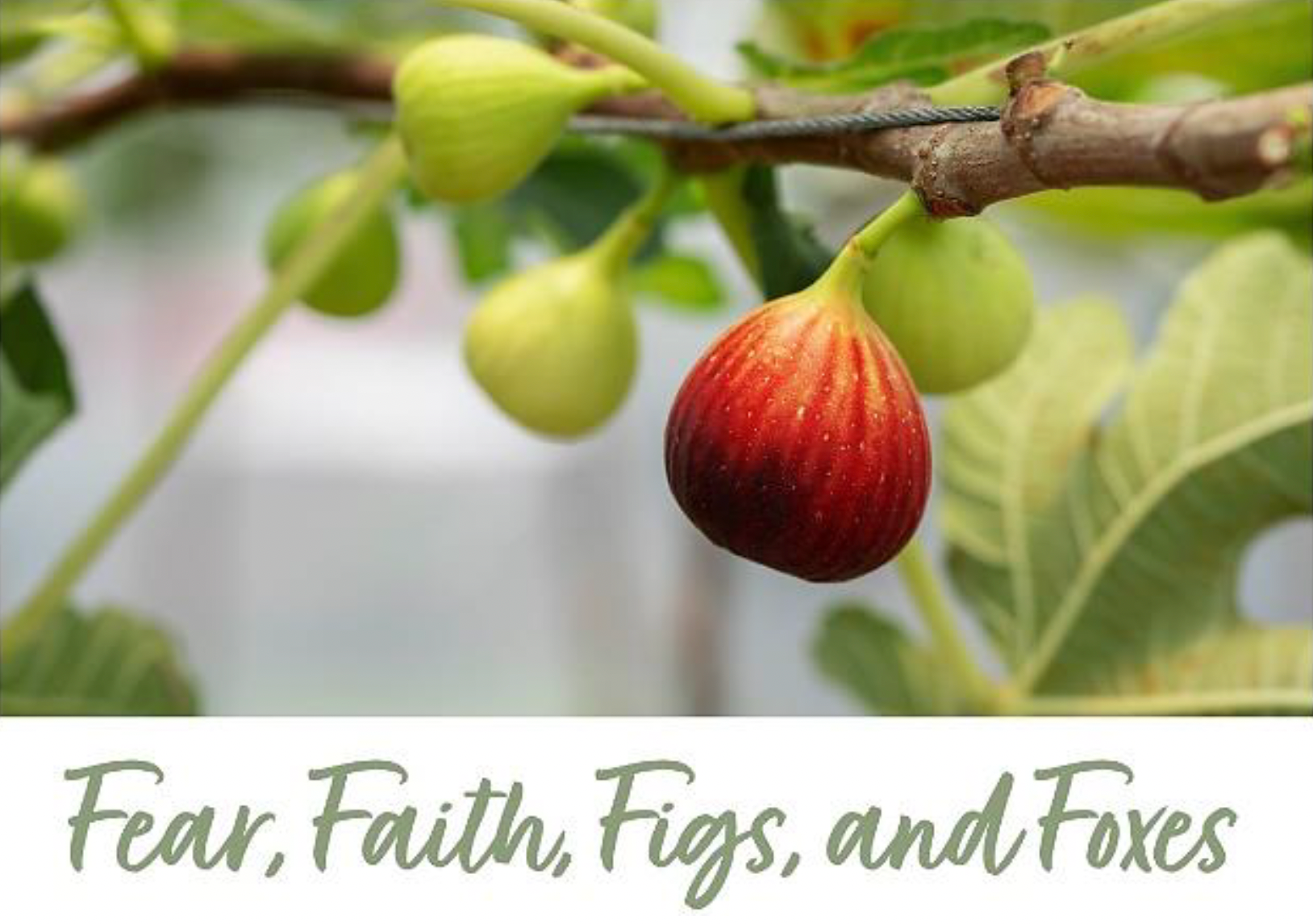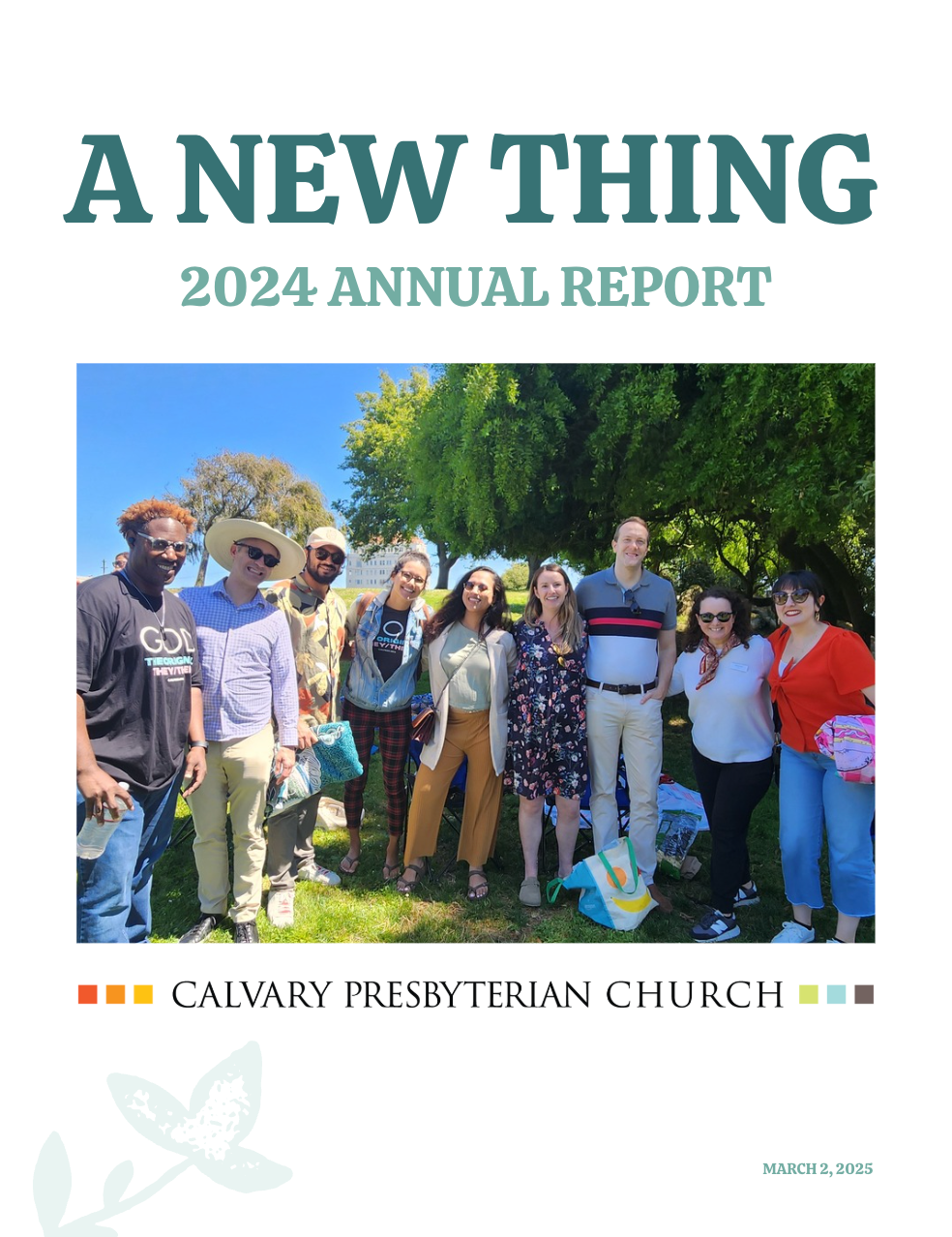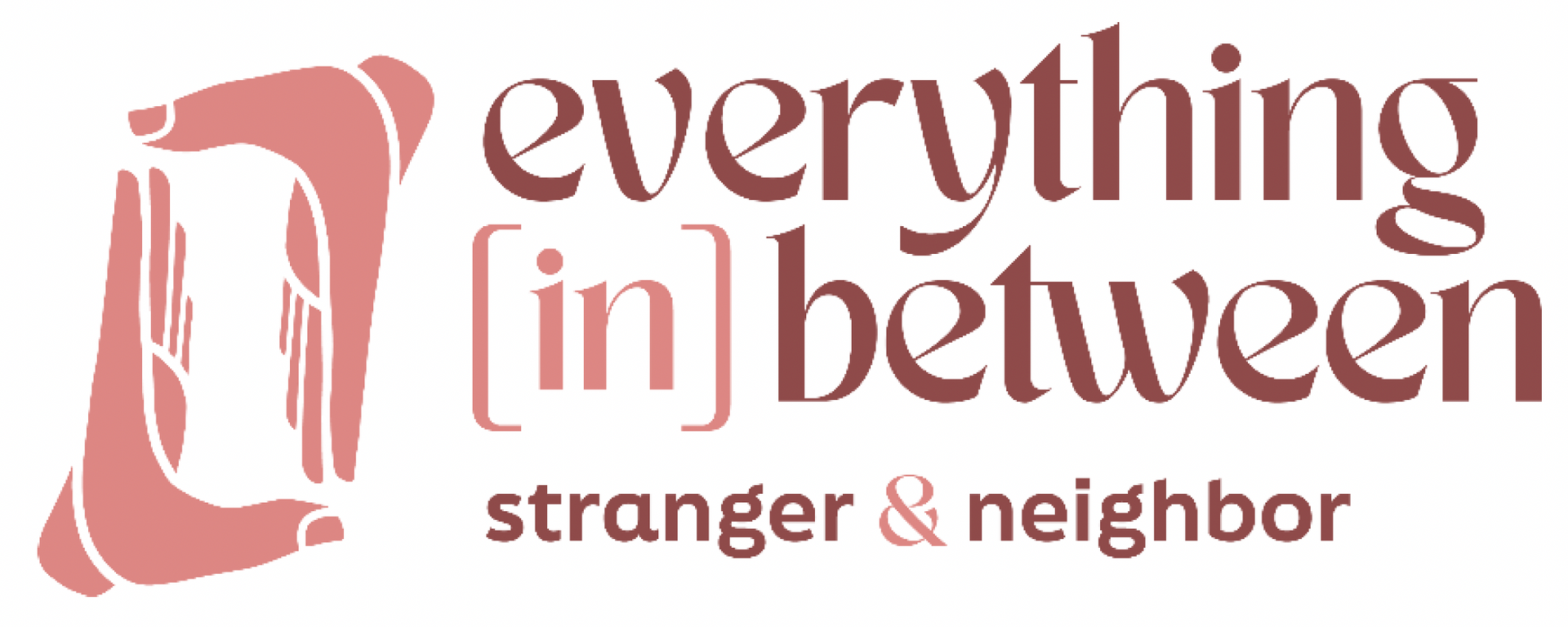Sermon 10.27.2024: What Are We Building?
As we read the story of Solomon building a house for God, let's think about what we're building in our world, in our families, and in our community.
Scripture
1 Kings 5:1-5; 8:27-30, 41-43
Now King Hiram of Tyre sent his servants to Solomon, when he heard that they had anointed him king in place of his father; for Hiram had always been a friend to David. Solomon sent word to Hiram, saying, ‘You know that my father David could not build a house for the name of the Lord his God because of the warfare with which his enemies surrounded him, until the Lord put them under the soles of his feet. But now the Lord my God has given me rest on every side; there is neither adversary nor misfortune. So I intend to build a house for the name of the Lord my God, as the Lord said to my father David, “Your son, whom I will set on your throne in your place, shall build the house for my name.” So the Lord gave Solomon wisdom, as he promised him. There was peace between Hiram and Solomon; and the two of them made a treaty.
King Solomon conscripted forced labour out of all Israel; the levy numbered thirty thousand men.
Then Solomon assembled the elders of Israel and all the heads of the tribes, the leaders of the ancestral houses of the Israelites, before King Solomon in Jerusalem, to bring up the ark of the covenant of the Lord out of the city of David, which is Zion. All the people of Israel assembled to King Solomon at the festival in the month Ethanim, which is the seventh month. And all the elders of Israel came, and the priests carried the ark. So they brought up the ark of the Lord, the tent of meeting, and all the holy vessels that were in the tent; the priests and the Levites brought them up. King Solomon and all the congregation of Israel, who had assembled before him, were with him before the ark, sacrificing so many sheep and oxen that they could not be counted or numbered. Then the priests brought the ark of the covenant of the Lord to its place, in the inner sanctuary of the house, in the most holy place, underneath the wings of the cherubim.
Then Solomon said:
‘But will God indeed dwell on the earth? Even heaven and the highest heaven cannot contain you, much less this house that I have built! Have regard to your servant’s prayer and his plea, O Lord my God, heeding the cry and the prayer that your servant prays to you today; that your eyes may be open night and day towards this house, the place of which you said, “My name shall be there”, that you may heed the prayer that your servant prays towards this place. Hear the plea of your servant and of your people Israel when they pray towards this place; O hear in heaven your dwelling-place; heed and forgive.
‘Likewise when a foreigner, who is not of your people Israel, comes from a distant land because of your name —for they shall hear of your great name, your mighty hand, and your outstretched arm—when a foreigner comes and prays towards this house, then hear in heaven your dwelling-place, and do according to all that the foreigner calls to you, so that all the peoples of the earth may know your name and fear you, as do your people Israel, and so that they may know that your name has been invoked on this house that I have built.
Sermon
When I moved to San Francisco, I worried I might possibly miss winter. Turns out. Nope. Not even a little. I quickly saw the benefits of perpetual spring. But last week, I traveled to Minneapolis for a conference and stayed with my best friend from college in her beautiful home overlooking Lake Minnetonka. And the trees were in glorious color, in their participation in the sacrament of letting go, as they get ready for winter.
So I don’t miss winter. But I do, a little, miss autumn. And was thankful for a chance to enjoy the fall leaves last week.
Autumn leaves have me thinking about permanence. And the lengths to which humans will go to pretend we can keep things from changing. No matter how beautiful leaves are when they turn crimson and orange, there is nothing we can do to keep them in that state. We cannot staple leaves to the branches to keep them from falling. And if we did, somehow, manage to keep them on their branches, it would kill the tree to not live through its cycle of bud, leaf growth, leaf death, and hibernation.
The poet Mary Oliver, in her poem, In Blackwater Woods, says this about what autumn leaves teach us:
To live in this world you must be able to do three things:
to love what is mortal;
to hold it against your bones knowing your own life depends on it;
and, when the time comes to let it go, to let it go.
Our lives, our civilization, our everything, is like that too. The permanent part of life is change.
Should we work to make that change beneficial for the world? Absolutely.
Should we have good hope that God is seeking beauty in our world and in our lives? Absolutely.
Should we pretend we can avoid change? Absolutely not.
Solomon inherited the throne from his father King David, God’s golden boy, the favorite one. David—the guy who had Uriah the Hittite killed so he could marry his wife, Bathsheba—the woman who would become Solomon’s mom.
David may have had all of the steadfast love of the Lord, but it didn’t mean his life was simple or that he made good decisions.
I think about the stories from David’s palace and wonder what it was like to be Solomon, David’s youngest son, his surviving son. Succession had nothing on this family. What must it have been like for Solomon to survive a childhood as the son of the other woman”, with an erratic father–—one minute on top of the world and the next minute disaster?
In this passage, it’s reported that David didn’t build the temple because he was too busy fighting wars and didn’t have time to meet with the architects.
David offers a different reason in 1 Chronicles 22, which reports:
“David said to Solomon, ‘My son, I had planned to build a house to the name of the Lord my God. But the word of the Lord came to me, saying, “You have shed much blood and have waged great wars; you shall not build a house to my name, because you have shed so much blood in my sight on the earth. See, a son shall be born to you; he shall be a man of peace. I will give him peace from all his enemies on every side; for his name shall be Solomon, and I will give peace and quiet to Israel in his days. He shall build a house for my name. He shall be a son to me, and I will be a father to him, and I will establish his royal throne in Israel for ever.”
Usually, the truth is somewhere in the middle of both accounts, and whatever the motivations, Solomon embarked on this huge public works project, taxing the people huge sums to have money to build the temple.
It took 7 years to build. He had to conscript labor in order to build it—this story is the only other place in Hebrew scripture where the same word they used in the Exodus story for slavery in Egypt is used again.
Pharaoh used slave labor to build pyramids to his own glory.
Solomon used it to build a temple to the glory of God.
I don’t know how that makes you feel, but the darker side to the biblical stories complicate things for me. It reminds me of the time I learned that slave labor was used to build the White House.
Is it still a beautiful building that is part of our history? Yes.
Does it sadden me to see the way slavery is built into the buildings that shape us and our national identity, reminding me that anti-racism is systemic work? Yes.
For all the ways we want the Biblical story, and even the stories of our own lives to be well behaved and well-mannered ones, the truth is that they are often neither.
We wish we didn’t know stories about people who seek impossible goals, trying to please their parents, as Solomon did building the temple. We wish we didn’t hear stories of our heroes being flawed and participating in systems of oppression.
Wishing doesn’t make it so.
We know we are flawed people, even as we try to act as if we’ve got it all figured out. We even know, at least in our hearts we know, that most of the moments of grace, transformation, and connection that we have in our lives arise out of the messed up places. And yet we want to freeze our story in the few “perfect” moments, like autumn leaves on trees.
Solomon built the temple to stand forever.
Spoiler alert—it won’t stand forever. It was already ruins by the time Jesus wandered through Jerusalem. It was likely already destroyed by the time 1 Kings was being compiled.
We know that human building projects will not last forever, no matter how much we wish they could.
When I traveled on my sabbatical in 2017, I toured a lot of ruins. I visited a graveyard in New Jersey where some of my colonial era ancestors are buried. All those names, so carefully etched in stone, have faded away, already lost to time, just a few hundred years on.
The church next to the graveyard, which one of my ancestors helped build in the 1600s closed its doors because the neighborhood changed around it and the church never responded to the people who moved into the neighborhood. I don’t know what the future looks like for that church building, but I’m confident there will be life in that place, even if it’s not the “forever” my ancestors imagined when they built the first building in the late 1600s.
In the UK, I visited Lindisfarne, an early monastic community off the coast of Northumbria in England. It hasn’t been an active site of worship since Henry VIII dissolved the monasteries in the mid-16th century, and many of the walls are tumbled down, yet there was beauty in the ruins. It felt sacred, even if the walls built to hold God are no longer standing. God is still there.
We hear stories of churches closing, or things ending, and we feel sadness, we see the destruction in the ruins.
Do we also see the beauty in the ruins?
Do we see the way God is not confined to our human building projects with the same emotions and expectations we are?
Solomon built the temple as a place for God to dwell forever. In the same sentence, he acknowledges God has stated a divine intention to dwell in “thick darkness”, presumably not requiring 4 walls and a gold roof.
Solomon builds the temple anyway and puts on an extravagant celebration—the biggest temple dedication ever—with an elaborate choreography of processions, priests, and pomp. And God interrupts the plan. Before the section we heard read today, we’re told:
“And when the priests came out of the holy place, a cloud filled the house of the Lord, so that the priests could not stand to minister because of the cloud; for the glory of the Lord filled the house of the Lord.”
I love this image of God being poorly behaved and refusing to enter the drama on cue. I’m also terrified of this reminder that God is operating with a different script than the one I’m so carefully trying to write and control.
As I mentioned at the start of worship, October 31, 1517 is when Martin Luther nailed his 95 complaints on the door of the Wittenberg Cathedral, and so today is when we mark Reformation Day. There were many other things happening at about the same time leading to change in the church, such as the invention of the printing press, and the introduction of coffee to Europe, but it is Luther’s action from which we mark the beginning of the Reformation.
The medieval Roman church thought its foundation was solid. Luther, Zwingli, Calvin, Knox, and others surveyed the walls and said, “We need to fix some of this.”
At first, for Luther, it wasn’t about starting a new denomination. It was about course correcting the church he loved before it sailed off a cliff.
Luther and the other reformers ’stories and lives are as complicated as David or Solomon’s. And it is hard to “celebrate” any schism of the church, even as I recognize I can be your pastor because women’s ordination is a byproduct of the Reformation.
While not all change is good, some of it I’m really grateful for. And some of it is well beyond our imagination. It would likely be quite shocking for many of the 16th century reformers to realize their work had led to women’s ordination, or the inclusion of people who are gay, lesbian, or trans in the leadership of the church.
God’s presence will not be confined to our buildings or stick to our script.
“ecclesia reformata semper reformanda secundum verbum dei” is the fancy Latin way to sum up what we, as Presbyterian flavored protestants believe. We are “a church reformed, ever being reformed, following the Word of God.”
What should be clear to us 500 years after the Reformation began, and a few thousand years after Solomon built a temple to last forever, is that while God does work through the organizational structures and the buildings we build, God is not contained or limited by them. The Spirit of God moves in and through our attempts at permanence and disrupts us, calling us to be ever reforming, ever following the Word of God.
We can’t keep change from coming, whether it’s the leaves abandoning their posts on the tree branches, or mighty temples of stone, turning to dust in the sand. My prayer is that when the glory of the Lord shows up and messes up our plans, we will have hearts open to trust that God is calling us to something new, even if the architecture and structure will look different.
The Reformation is not just a history lesson. As inheritors of the teachings of Martin Luther, John Calvin, John Knox, and others—we are people who believe God is always re-forming us and reforming the church.
What are we building? How are we being re-formed? In all the changes we’re seeing in church and culture, what is being built right now is very much up for debate. I pray our actions, our witness, our compassion in the world will build temples to God’s love, mercy, and peace, and not to our own greatness.
We’re ten days out from the election. We’ll have the chapel open that day as a space for prayer and meditation, if you’d like to stop by between 8 am and 6 pm. I know many people are feeling anxious, both about the outcome and about potential aftermath. I understand the anxiety.
And maybe the story of temples in ruins that were built to stand forever don’t initially seem like a good story to give you this close to this particular election. But. Here’s what I know.
One of the permanent parts of life is change. And so our participation in that change is what we control. We can focus on our fears or we can work for our hopes. It is hard to do both. We don’t need to pretend there aren’t things we’re worried about. But we can choose how to respond. And if you need permission to turn off the news for a bit, you have permission to turn off the news and stop looking at the polls. Maybe use that non-news time for meditation, for service to others, for time spent with loved ones, for a pedicure. Whatever you need.
Another thing I know. God is at work, inside and outside our church structures, our governmental structures. God is neither contained nor limited by human agendas. So, as we look at what we are building, we can look for where the divine is present and active and then work toward those things.
The comfort I take as I survey this strange moment of history we are living through, is that I get to serve here, with you. I find great comfort in this community, in the care you provide each other and the broader community, in your capacity to do hard work for good beliefs. What a gift it is to not feel alone and isolated in a time like this.
At the end of our reading today, Solomon said that the way foreigners are welcomed in the house of God is how God will decide whether or not to dwell I the house on earth that Solomon built. Listen to Solomon’s charge to his people, even as he voices it to God:
‘But will God indeed dwell on the earth? Even heaven and the highest heaven cannot contain you, much less this house that I have built! ‘Likewise when a foreigner, who is not of your people Israel, comes from a distant land because of your name—for they shall hear of your great name, your mighty hand, and your outstretched arm—when a foreigner comes and prays towards this house, then hear in heaven your dwelling-place, and do according to all that the foreigner calls to you, so that all the peoples of the earth may know your name and fear you, as do your people Israel, and so that they may know that your name has been invoked on this house that I have built.
What will people see when they look back 500 years from now, and survey the ruins of 21st century San Francisco, the way we’re looking back at the Reformation’s beginnings or at Solomon’s Temple? Will they see God’s work in how we welcomed foreigners, as Solomon said?
The work you do in this community to share kindness, mercy, hope, and inclusion—I trust and pray God will continue to build something out of that witness of love. It may or may not be a physical building. God may be constructing scaffolding in people’s hearts that keeps hearts open and expanding, ready to welcome more and more people into their circle of care. Just think about what that might build.
Put on your hard hats. We’ve got work to do.


